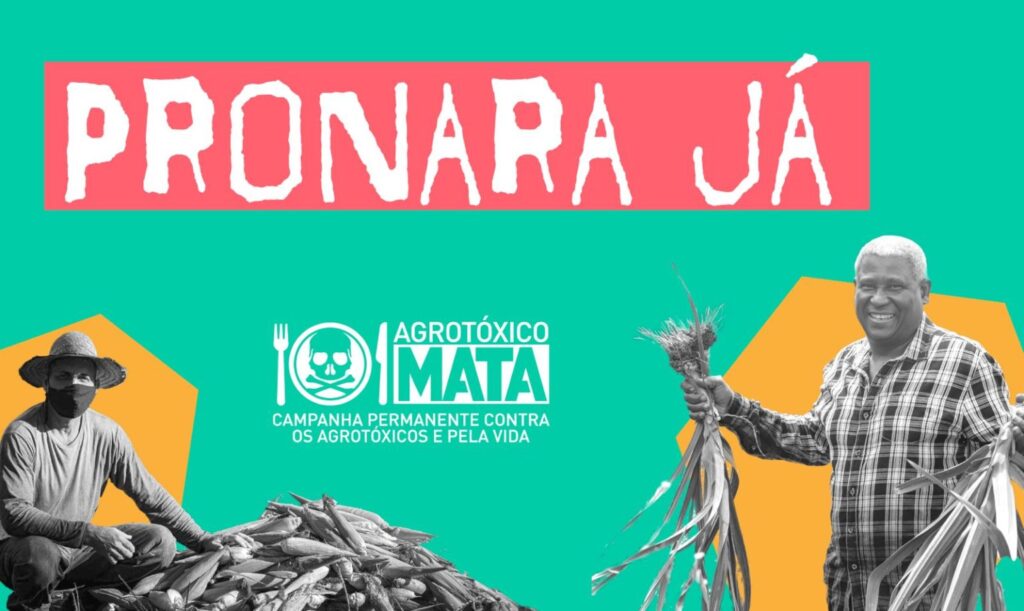Civil society organizations are on alert at the possible exclusion of PRONARA from the National Plan for Agroecology and Organic Production
Reproduction Permanent Campaign Against Pesticides and for Life

This week, the government is about to launch the National Plan for Agroecology and Organic Production (Planapo). The plan, eagerly awaited by civil society organizations, defines various guidelines and actions to strengthen agroecology and organic production in the country. Among these guidelines is the establishment of the National Program for the Reduction of Pesticides (Pronara), which aims to reduce the use of pesticides and promote more sustainable agricultural practices.
However, sectors linked to agribusiness have been lobbying the government to prevent Pronara from being included in Planapo, which would represent a step backwards for the fight for healthy food in Brazil. This resistance has worried various organizations, which make up the Permanent Campaign Against Pesticides and for Life, which considers Pronara essential to reduce the impacts caused by pesticides on health and the environment.
It’s worth remembering that Pronara had already been approved in August 2014 by the National Commission for Agroecology and Organic Production and was scheduled to be launched at the end of that year, after a review by the ministries involved, which didn’t happen. The election of President Lula in 2022 brought the hope of rebuilding a country torn apart by barbarism over the last six years, and of making important progress on the health and environment agenda, and Pronara is an instrument that will make this progress possible.
The Permanent Campaign Against Pesticides and for Life, together with other organizations, is on alert in the face of uncertainties about the implementation of Pronara. The lack of commitment on the part of the ministries, especially the Ministry of Agriculture, Livestock and Supply (MAPA) to healthy eating in the country has caused concern. In addition, the process of dialogue with civil society organizations has been unsatisfactory, reinforcing the feeling of exclusion in discussions on public policies that are fundamental to combating hunger through healthy and sustainable food systems.
For social organizations in the agroecological field, Pronara is indispensable in Planapo, because it is impossible to think of agroecology without reducing pesticides!
The scenario is aggravated by the approval of the poison package, which makes the publication of Pronara even more urgent as a way of mitigating the permissive effects of the new law. The poison package was almost entirely approved, fulfilling the main goals set by the rural caucus. Meanwhile, Pronara, in its revised version, should support measures restricting the registration and use of pesticides banned abroad that cause cancer and other chronic diseases, as well as strengthening the regulatory role of health and environmental agencies.
Faced with this scenario, the Permanent Campaign Against Pesticides and For Life is mobilizing a manifesto for more organizations to sign and unite in defending the inclusion of Pronara in Planapo. So far, around 40 organizations have signed the manifesto.
Pronara is an important instrument for civil society and needs to be put into effect in order to advance the promotion of agroecology in Brazil. The inclusion of this program in the Planapo will have profound implications for the future of sustainable agriculture in the country, representing a clear step towards building a production model that respects the environment and the health of the population.
Civil society organizations are vigilant and determined to ensure that the government fulfills its role and guarantees the implementation of Pronara, without concessions that could compromise the struggle for agroecology and a fairer, more sustainable agriculture.
Nothing found.




